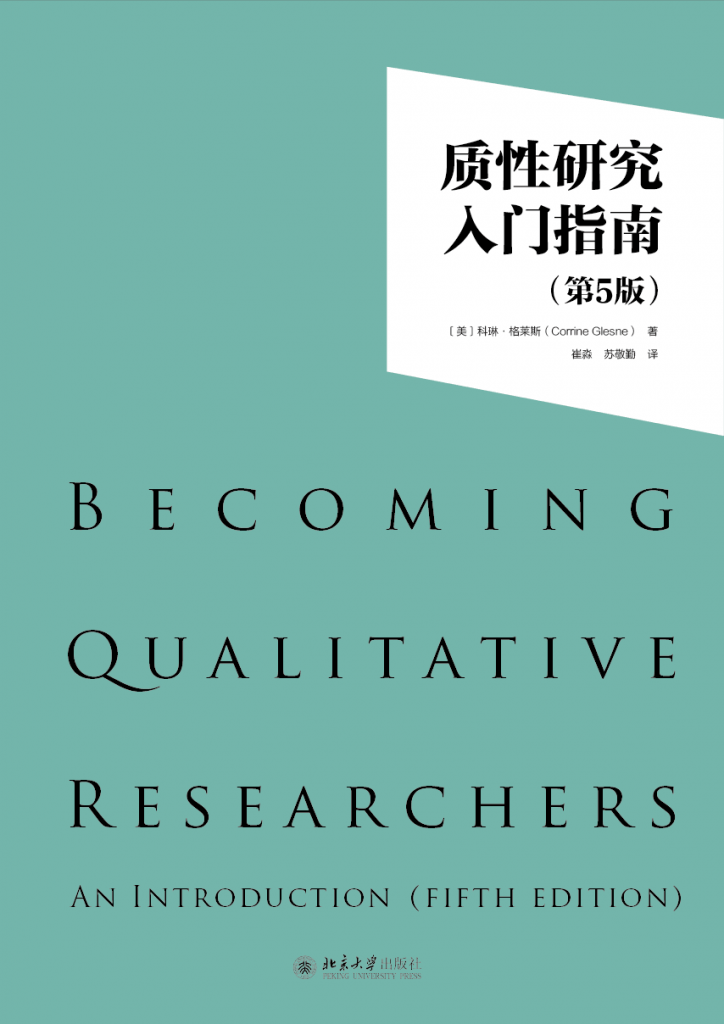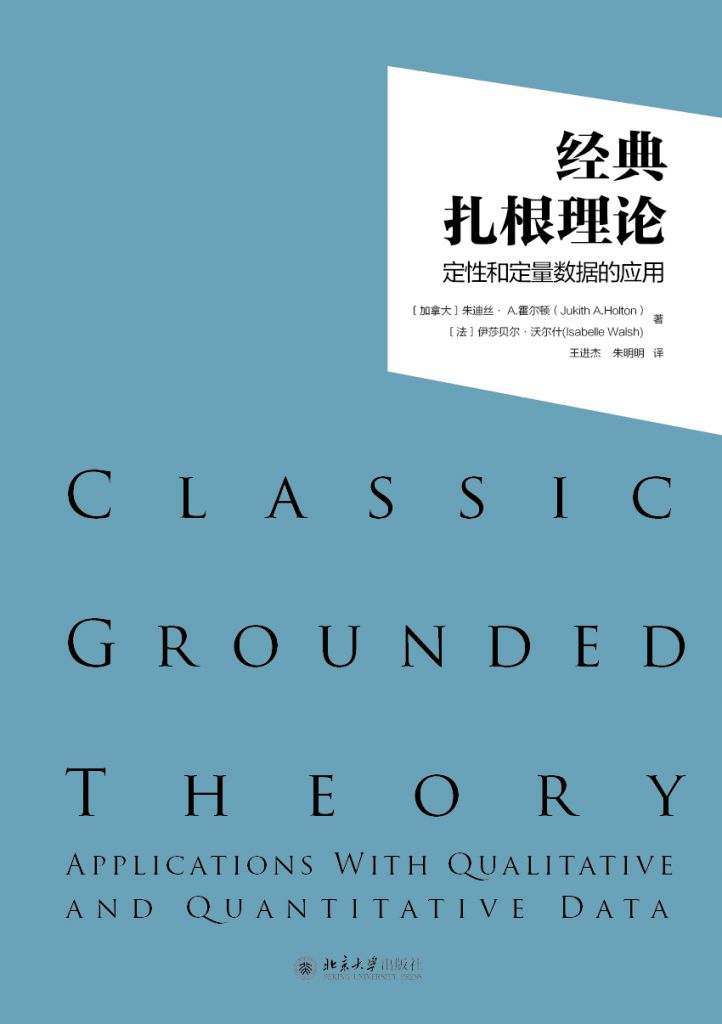IACMR New Books 2021

Engaged Scholarship: A Guide for Organizational and Social Research
AUTHORS
Andrew H. Van de Ven is Vernon H. Heath Professor of Organizational Innovation and Change in the Carlson School of Management of the University of Minnesota. He received his Ph.D. from the University of Wisconsin at Madison in 1972, and taught at Kent State University and the Wharton School of the University of Pennsylvania before his present appointment. He was 2000-2001 President of the Academy of Management and is a Fellow of the Academy of Management.
CONTENTS
1:Engaged Scholarship in a Professional School
2:Philosophy of Science Underlying Engaged Scholarship
3:Formulating the Research Problem
4:Building a Theory
5:Process and Variance Models
6:Designing Variance Studies
7:Designing Process Studies
8:Communicating and Using Research Knowledge
9:Practicing Engaged Scholarship
INTRODUCTION
The relationship between theory and practice, research and action, is fundamental to all fields of applied social science. Should research findings and knowledge be useful for science, practice, and policy? If so, how should such research be designed, carried out and disseminated to achieve the twin goals of rigor and relevance? These challenges are particularly relevant in the applied areas of management and organization studies where there is a distinct responsibility for researchers to engage with the “real world”. In this carefully crafted and thoughtful book, leading management researcher Andrew Van de Ven both presents the broad intellectual challenge of “engaged scholarship”, and also sets out a clear framework and guidelines for carrying out soundly based and useful research for advancing both science and practice.
At a time when some may question the value and status of academic knowledge; and others, contrastingly, urge a closer relationship between researchers and research users–be they businesses, governments or other institutions–the challenge of engaged scholarship is as relevant as ever, and there is a real need for the thoughtful and considered approach offered by Van de Ven. The book both provides a manifesto for engaged scholarship in the social sciences, and clear framework for research design and methodology. It will be an invaluable reference point and guide for academics, researchers and graduate students across the social sciences concerned with rigorous and relevant research in the contemporary world.

The Ethical Professor: A Practical Guide to Research, Teaching and Professional Life
AUTHORS
Lorraine Eden is the Gina and Anthony Bahr Professorship in Business in the Department of Management at Texas A&M University.
Kathy Lund Dean is the Board of Trustees Distinguished Professor of Leadership and Ethics at Gustavus Adolphus College.
Paul M. Vaaler is the John and Bruce Mooty Chair in Law and Business at the University of Minnesota’s Law School and Carlson School of Management.
INTRODUCTION
The purpose of The Ethical Professor is to provide a road map to some of the ethical dilemmas that doctoral students and newer faculty members are likely to face as they enter a career in academia (the Academy). Academic career paths appear to be quite standard, transparent, and achievable with dedicated and hard work. Argued in this book, however, is that the road map to a successful academic career is not so easy. There are ethical pitfalls along the way, starting with entry into academia as a new PhD student. These ethical dilemmas remain equally opaque as faculty progress in their careers.
The ethical pitfalls that plague each of the steps along the academic career path are often not visible to doctoral students and young faculty members; nor are they well prepared to spot them. Ethical issues are seldom discussed and little training is provided on how to spot and handle these potential road blocks to a successful career in the academy.
Based on extant research and collective years of academic experience, The Ethical Professor seeks to shorten the learning curve around common ethical pitfalls and issues by defining them, sharing research and experiences about them, and offering a discussion framework for continued learning and reflection.
This innovative new volume will be key reading for doctoral students and junior faculty members in social science departments in colleges and universities, as well as managers undertaking an MBA. Due to the increasing complexity of managing academic institutions, more seasoned professors, administrators, and college deans and presidents, will also benefit from the research presented here.
CONTENTS
Part 1: Introduction
Part 2: Ethical Dilemmas in Research
- 20 Questions: Ethical Research Dilemmas and PhD Students
- Pitfalls for the Unwary: New Entrants to the Academy
- Scientists Behaving Badly: Insights from the Fraud Triangle
- Slicing and Dicing: Ex Ante Approaches
- Slicing and Dicing: Ex Post Approaches
- Retraction: Mistake or Misconduct?
- Double-Blind Review in the Age of Google and PowerPoint
- Ethics in Research Scenarios: What Would You Do?
- Thought Leader: Michael A. Hitt on Ethics in Research
Part 3: Ethical Dilemmas in Teaching
- Beyond Course Content: Ethical Dilemmas in Teaching
- Teaching and Ethics: A Critical Incident
- Peer Pressure, Or, I Thought I Was Out of High School
- Teaching Versus Preaching: Conversational Ethics in the Classroom
- My Students Want to Friend Me! Boundaries and Relationships with Social Networks
- What Do We do when Students Despair? Considering Pedagogical Caring
- From Content to Relationship
- It’s Not Just Rate My Professor Anymore! Ethical Issues with Student Evaluations of Teaching
- Student Recommendations: To Give or Not to Give, That Is the Question
- Thought Leader: Robert A. Giacalone on “Broken When Entering’”
Part 4: Ethical Dilemmas in Professional Life
- Codes and Conflicts of Interest
- When Is a Job Offer Really a Job Offer in Academia?
- Attending Professional Meetings
- Peer Reviewing
- Managing University Service Work
- Tribalism
- Outside Appointments
- Thought Leader: Andrew Ven H. Van De Ven on Ethics and Professional Life
Conclusion: Roadmap to Success in the Academy
References
Index

Normal Organizational Wrongdoing: A Critical Analysis of Theories of Misconduct in and by Organizations
INTRODUCTION
Instances of wrongdoing in and by organizations have featured heavily in news headlines in recent years. Why do organizational participants – employees, managers, senior officials – engage in illegal, unethical, and socially irresponsible behavior? The dominant view of wrongdoing as an abnormal phenomenon assumes that the perpetrator is a rational, proactive actor, working in isolation. However, Palmer develops an alternative approach in this book, examining wrongdoing as a normal occurrence, produced by boundedly rational actors whose behaviour is shaped by the immediate social context over a period of time. The book provides a comprehensive critical review of the theory and research on organizational wrongdoing. By using rich case study material, it illuminates different perspectives, potential explanations, and policy suggestions for the reduction of organizational wrongdoing
AUTHORS
onald Palmer is Professor of Organizational Behavior at the Graduate School of Management, University of California, Davis. He has served as Assistant Professor in the Graduate School of Business at Stanford University and as chair of the Department of Sociology at Reed College. Professor Palmer has conducted quantitative empirical studies on corporate strategy, structure, and inter-organizational relations and qualitative studies of organizational wrongdoing, which have been published in the American Sociological Review, American Journal of Sociology, Annual Review of Sociology, Social Forces, Research in the Sociology of Organizations Administrative Science Quarterly, Research in Organizational Behavior, Strategic Organization, and Journal of Management Inquiry. He was an Associate Editor of Administrative Science Quarterly from 2000 to 2002 and Editor of the journal from 2003 to 2008.
Contents
List of Figures and Tables xiv
List of Abbreviations xv
1. Introduction 1
2. Two Perspectives on Organizational Wrongdoing 6
3. Definitions, Theoretical Development, and Method 25
4. A Rational Choice 42
5. Culture 66
6. Ethical Decisions 90
7. Administrative Systems 126
8. Situational Social Influence 145
9. The Power Structure 176
10. Accidental Wrongdoing 211
11. The Social Control of Organizational Wrongdoing 243
12. Conclusion 268
References 284
Index 303
OUP UNCORRECTED PROOF – REVISES, 4/11/2011, SPi xiii

Becoming Qualitative Researchers: An Introduction(fifth edition)
Introduction:
Beginning researchers get an overview of qualitative research through a concise look at the practice of conducting research and the theory and debates that keep qualitative inquiry vibrant. Ideal for introducing the novice researcher to the theory and practice of qualitative research, this text opens students to the diverse possibilities within this inquiry approach, while helping them understand how to design and implement specific research methods. The author’s accessible writing style, the wealth of examples, and the numerous exercises provide opportunities for practicing and refining the skills of becoming a qualitative researcher. The new edition focuses on the development of research proposals (Ch. 2); the history and concerns of institutional review boards (IRBs) and issues qualitative researchers sometimes confront when submitting proposals (Ch. 6); greater information and examples on coding and thematic analysis, while also introducing other approaches to data analysis (Ch. 7); and arts based research through a chapter that encourages consideration of creative ways to approach and represent inquiry (Ch. 9). Chapter 10 looks at sharing research results through participation at conferences and in publications.
Contents:
CHAPTER 1
Meeting Qualitative Inquiry 1
CHAPTER 2
Research Design and Other Prestudy Tasks: Doing What
Is Good for You 29
CHAPTER 3
Being There: Developing Understanding Through Participant
Observation, Documents, and Visual Research 64
CHAPTER 4
Making Words Fly: Developing Understanding Through
Interviewing 96
CHAPTER 5
Field Relations: Researcher Roles, Rapport, and
Reflexivity 131
CHAPTER 6
But Is It Ethical? Considering What Is “Right” 158
CHAPTER 7
Finding Your Story: Data Analysis 183
CHAPTER 8
Crafting Your Story: Writing Up Qualitative Data 218
CHAPTER 9
Improvising a Song of the World: Arts Based Research 243
CHAPTER 10
The Continuing Search 271

Classic Grounded Theory:Applications With Qualitative and Quantitative Data
Introduction:
Classic Grounded Theory: Applications With Qualitative and Quantitative Data provides practical “how to” guidance for doing grounded theory (GT) using the classic approach articulated by Barney Glaser. Authors Judith A. Holton and Isabelle Walsh emphasize the philosophical flexibility of classic GT as a “full package” approach that can be applied to any study and any type of data where the goal is to discover and generate a conceptually integrated theory. Drawing on the experiences of novice researchers who have participated in GT troubleshooting seminars, the book provides step-by-step guidance on undertaking a research study that stays true to the classic GT practice paradigm.
Authors:
Judith A. Holton – Mount Allison University, Canada.
Isabelle Walsh – SKEMA Business School, France.
Contents:
Preface
About the Authors
An overview of Classic Grounded Theory
1. Situating Grounded Theory on the Research Landscape
2. Discovering New Theory as the End Purpose of Classic Grounded Theory
3. Foundational Pillars of Classic Grounded Theory
4. Clarifying Common Sources of Confusion in Grounded Theory
5. Finding Your Data
6. Analyzing Your Data
7. Shaping the Theory
8. Writing as an Important Part of Doing Classic GT
9. Writing Classic GT for Publication
10. Evaluating Classic Grounded Theory
Conclusion Appendix A: Doing Qualitative Research Does Not Mean You Are Doing Classic GT
Appendix B: Classic GT Using Qualitative Data
Appendix C: Doing Classic GT Using Mixed Qualitative and Quantitative Data
Appendix D: Some Examples of Theoretical Coding Using Mixed Qualitative and Quantitative Data
Appendix E: Examples of Diagrams as Precursors of a Theory
